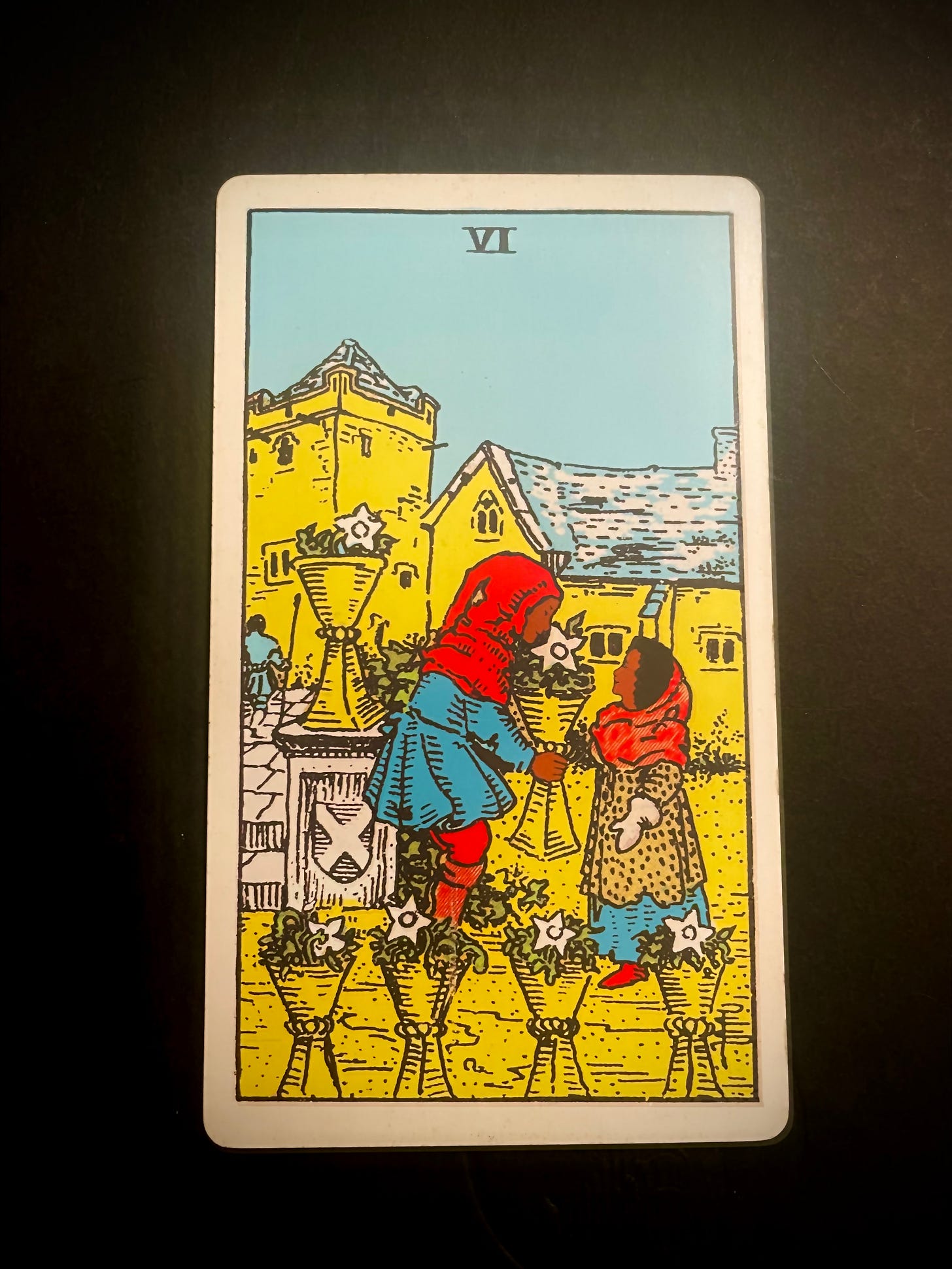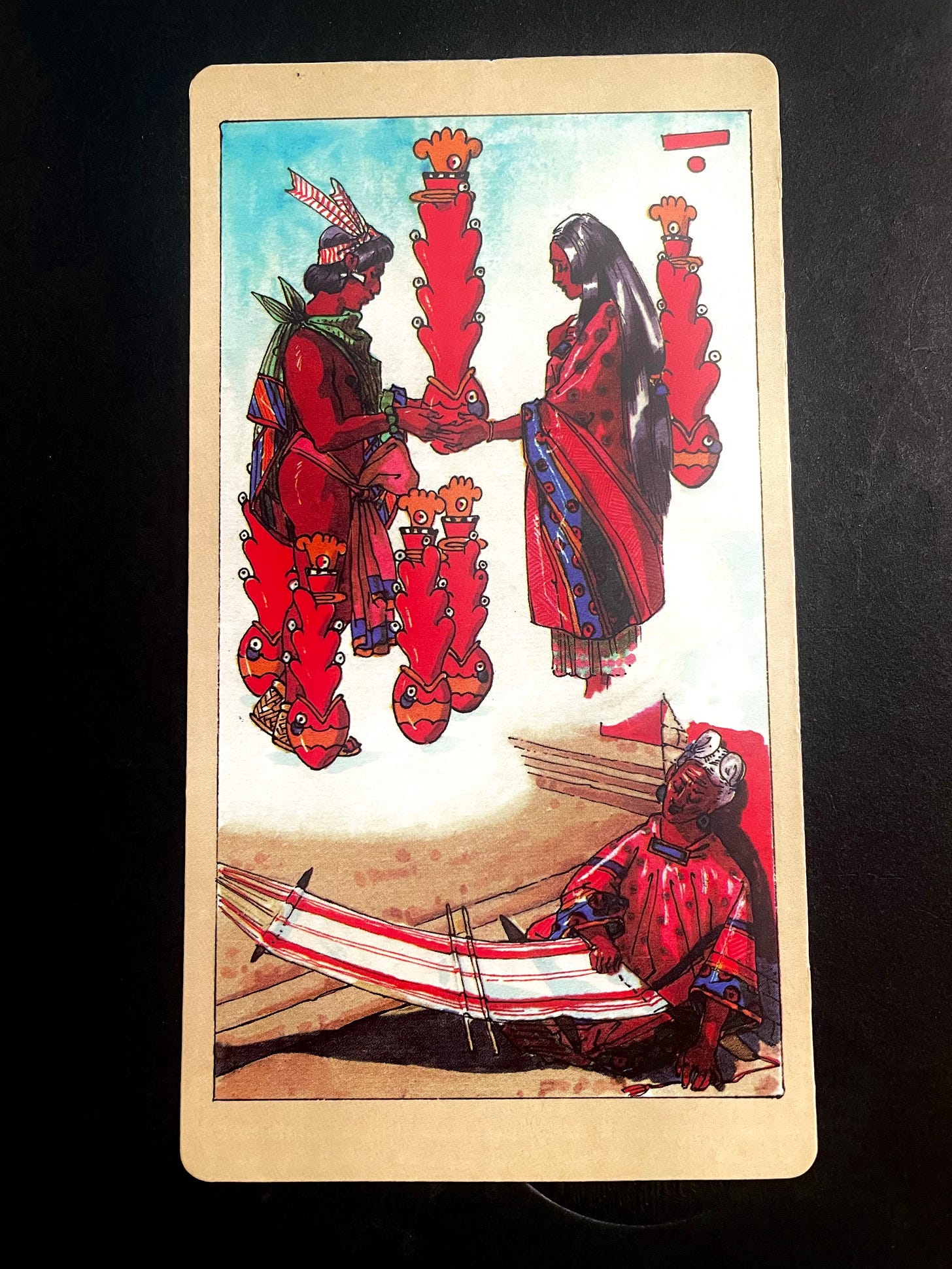Updates:
TENZ {XZ} is a facilitated decan walk through the minor arcana of the tarot. This is a year long guide into the minor arcana, using the tarot images as doorways into a depth understanding of the zodiac.
As is the tradition of decanic imagery, this course is an inspired re-interpretation of historical meaning through modern application. Decan history and application is ongoing, a rich ritual calendar with four millenia long collection of spirits and symbols, and a path toward individual determination, a path toward dignity that is queer in its self-determination. TENZ is tarot as a movement practice, whereby as we walk with agency we reclaim dignity lost at the intersections of white supremacy, capitalism and imperialism.
The class is cut into 12 monthly units, following the cards / decans of the current zodiacal season. Each month consists of a pre-recorded lesson ( about 1.5 hours each), and 2 live class (each approx. 2 hours ) to focus on integration and application. Payment plans are available to enroll now at $150.
Each lecture is accompanied by a downloadable presentation, which includes a summarized critical reading of the decans, journal / tarot prompts and tarot spreads for personal inquiry. Also provided are ancient translations of the decans for a well-rounded exploration and learning.
This year long course is an ongoing offering because walking the spiritual path is not something we do occasionally. We need faith, a critical faith to walk empowered after being exiled and dislocated by the state. I’m wrapping up with my first cohort of XZ and its been so fortifying to see this class bring us back to consistently bring us back to center. I’m very much looking forward to year 2, where we will examine various more modes of the larger cycles and cyphers of time. Here’s your chance to join a growing community of red readers.
Dear Reader,
More than a nightmare to run from, our personal past can often be a site to draw energy and critical force.
It’s much too much to let go of the past altogether. But what to forsake, what to fortify?
In the approximately 30 readings I gave this past weekend (at lovely vendor markets in Barrio Logan), so many clients pulled the Six of Cups and from so many decks. In its experiential archive we came to consider that the Six of Cups is a venue for Venus.
Most all of them were aware of Venus’ retrograde, and so we spoke about past lovers, first loves and fuck boys, divorce and infidelity, dead relatives, death rituals, the diaspora, the devastating disappointment of a sudden crash to an intimate connection, and the present opportunity to renew the valor of love in our life by reassessing our role in our relations. Reciprocity seems hard to come by right now, but if not romantically then familial, neighborly, sisterly love is very palpably confronting the quality and texture of our connecting.
Venus, in her retrograde motion, is vanishing from the night sky. The Sun see’s but is not seen and neither are the planets that come under its beams, into its heart. And so she recalibrates in the private darkness, she becomes the Angel of Memory with her faced turned toward the past. All the moreso when she retrogrades through your subterranean heavens. I keep going back to the grave.
So it makes sense for the Six of Cups to show up. It can represent the impulse to invoke the past for a critique of the present.
Personal memory always intertwines with social legacy of past worlds. So use the Six of Cups to invent a theater of memory, and use that memory to intervene in hostile social worlds. Only benefics can do this. By sharing white roses, these arcanum figures are surely Venusian, for they are beautifying the world by each adorning the other. They are uplifting, recuperating, harmonizing a discordant, cynical lonely existence with their invoked memories of shared pleasure.
The Six of Cups prophet firmly establishes their future life by historicizing the self, by reciting an affective index of ethnic, communal particularities. Shared identification emerges from the recitation, like the children sharing the memory of a flower passed between soft fingertips, something cooperative is enacted.
Keep examining the cards and you might find some small lesson of a parable about the world’s workings.
Today that might mean recognizing the card as a strategy for survival and queer self-making. Queers of color incur more risk cutting ties with the cishet familial past, despite it’s strife and potential violence, because unlike white queers, this often also includes cutting ties with their ethnicity and/or race.1 May we return to some heteronormative childhood scene and see it and say it rehabilitated, reimagined and politicized in the brown queer now.
The Six of Cups elicits a periodic refuge in the past to a time before pandemic. But not to collapse under the gravity of nostalgia but to reassert agency, to reclaim a power, a shared body that the State is always attempting to annihilate.
Of Walter Benjamin’s famous , “On the Concept of History”, Judaic scholar Jonathan Boyarin writes suggesting the need for a double gesture toward the past, for if the present is characterized by ongoing emergency, than also “something precious is eternally being lost.” One memory gesture engages, interrogates, recovers the past while another realizes it plenitude can never be recouped. But the queers of color (re)formulate their identities by reconfiguring the space of imagined ethnic, cultural past.
Memory is something queer in itself, presenting an opportunity for transgressive cross-identification.
“Assimilation and progress are typically coded as male, and the past, ethnicity, and heritage are represented by an abjected maternal body. Alfaro metaphorically steps into the maternal position, thereby documenting this queer male activist-performer’s debt to female embodiment. More than a queer cross-identification with the female body, it is in fact a call to disengage from masculine gender in an effort to rethink the social from within an expansive political frame, one that understands the structuring of gender within the sociopolitical realm.”2
The Six of Cups transforms the present materiality of space, scent sight and sound into a series of narrative vignettes of emotionally-laden memory sites. And then these narratives that normative culture never considered become a catalyst to contest the repression of an embodied eros.
Memories threaten to overwhelm, because memory is desire. That old lover messages and swells an uncertain brew of heartache’s passion and pain within. In this time of plague, loss, sorrow and shame, memory compels us when we wish for a late grandmother’s love to heal us once more.
It’s love that we’re always trying to remember and return to. It’s always loss laced with violence that we’re trying to redeem.
Perhaps as Venus vanishes into the past, something new of old love will become visible and show us the way forward.
~C
José Esteban Muñoz, The Sense of Brown, (Durham and London, 2020, Duke University Press), 73.
Muñoz, The Sense of Brown, (Durham and London, 2020, Duke University Press), 68.








